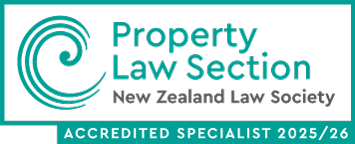Overseas Investment Changes- What Real Estate Agents need to know
Thursday 11 October 2018
The Overseas Investment Office (OIO) has finally released details of how they will apply the Overseas Amendment Act 2018.
We will summarise the important points below.
- Commencement: There was uncertainty as to whether the Act will apply to transactions which were settled on or after 22 October 2018, or only agreements entered into after that date. The OIO has now confirmed that the Act will apply only to the agreements relating to Residential Land entered into on or after 22 October 2018. That is the case even if those agreements are conditional. Agreements entered into pre 22 October 2018 which are confirmed after that date will escape the regime.
- What constitutes Residential Land: These are properties classified as Residential or Lifestyle under the District Valuation Roll. Residential Land will be deemed sensitive land from 22 October 2018.
- What transactions will require OIO consent: OIO anticipates that real estate agents will work with purchasers to determine whether consent from Overseas Investment Office is required. They have provided a flow diagram which is intended to assist. A copy of that diagram is attached. The reality is that an agent cannot be expected to understand the full circumstances of the purchaser. Unless you are dealing with a person whom you know is a New Zealand citizen, it would be best to ask the purchaser to seek legal advice. The alternative is to provide for the purchaser to have the opportunity as a condition of the agreement.
- NZ Residents or Permanent Residents: This is the case even if you are dealing with a New Zealander permanent resident as compared to a citizen. In our experience there are many New Zealanders who have never adopted NZ citizenship for various reasons. One reason is that their original home country does not allow for dual citizenship and adopting New Zealand citizenship would require them to give up the other. The Overseas Investment 2018 amendments require consent even for those who have a permanent residence visa, unless they have in effect been living here for at least the last 12 months. If you have a permanent resident who has just returned from overseas, they will require consent before they can buy a residential or lifestyle property.
- Consent Process for NZ Residents: If you have a returning NZ resident who hasn’t lived here for the last 12 months, chances are they would need to apply for consent under the one home to live in exemption. OIO has promised that they expect the consent process for such exemption to be reasonably straightforward, and consent should be available in a matter of days rather than weeks. However, those details have yet to come out. The purchasers should seek legal advice as to the timing to be allowed for conditions.
- Australian & Singaporean citizens: You can buy Residential Land (which is not otherwise sensitive) without OIO consent. However, the situation is different for Australian and Singaporean permanent residents. They must have lived in NZ for at least the last 12 months in order to buy Residential Land without OIO consent. Otherwise consent is required.
- Other Non-Residents – Pathways: In summary, for a person who is here on a work, visitor, or study visa, they cannot buy existing residential properties unless it is one of the following:
-
- Apartment in large apartment development with an exemption certificate. Such exemption certificates may be granted for large apartment developments for which a proportion of the apartments may be purchased by overseas persons, with or without conditions.
-
- Developing Residential Land pathways: Pathways for consent are available for overseas persons who meet the investor test and will achieve the following outcomes:
-
-
- Increased Housing- Overseas person may not live in;
- Non-Residential Use;
- Incidental Residential Use.
Additional criteria apply and specific conditions will be imposed on consent through these pathways.
-
- If the land is also “sensitive land” for other reason(s): An example of sensitive land which is not residential is:
- non-urban land which is over 5ha; or
- land which adjoins a foreshore which is over 0.2ha; or
- land which adjoins a lake bed which is over 0.4ha.
In these cases, there are potential pathways for consent. However, the purchaser must meet certain requirements such as one home to live in, the investor test, and the general benefit to NZ test.
- Commercial Property: One must always remember that non-residents are still able to purchase without OIO consent commercial properties i.e. if they are not designated residential or lifestyle on the District Valuation Roll. (That is of course unless they are sensitive for other reasons.)
In summary, there is no question that the Overseas Investment regime has been made very complex by the introduction of the amendments this year. Those changes affect not only non-New Zealand residents but even NZ residents or permanent residents.
Our firm has been dealing with many clients from overseas or New Zealanders who have been returning from overseas. We have been following the changes this year. If you have any questions, please contact Teresa Chan at teresa@tchanlaw.co.nz or (03) 477 1069.
Teresa Chan
10 October 2018
The above article is for general information only. For specific advice, please contact Teresa Chan at Teresa Chan Law Limited.


